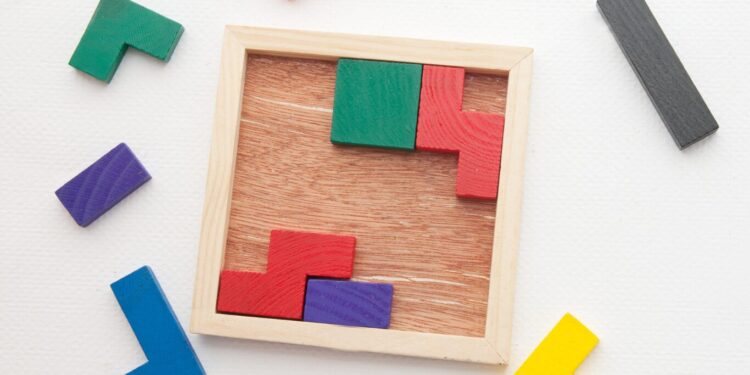Online puzzle games are the modern successors of traditional board puzzles. Both forms are designed to challenge player’s logic, pattern recognition, and problem-solving skills. However, time and technology have introduced much so variation to online puzzle games that it can be hard to spot the similarities.
For instance, there isn’t much difference between the traditional and digital versions of jigsaw puzzles. Digitalization remains the primary difference between the online game and its old-fashioned ancestor. However, a classic game like Puzzle Bobble differs in mechanics and gameplay from the Bubble Shooter online game, which is an innovative newcomer.
Through years of research, I’ve decoded the big difference between online puzzle games and traditional board puzzles. In this article, I’ll also explore the educational value and aspect of social interaction in both contenders.
Let’s explore
Historical Context of Puzzle Games
Jigsaws, some of the most popular traditional board puzzles, were invented by John Spilsbury in the 1760s. He saw cut-up maps as potentially helpful teaching resources and began producing them commercially. What started as intricately cut map pieces soon diversified into biblical scenes and portraits of prominent figures.
Like the retro bubble shooter online game, jigsaw puzzles were early forms of mental exercise and social interaction. The initial aim was to teach children geography by challenging them to assemble the puzzle pieces. However, the introduction of cardboard versions made the game more accessible and more people began enjoying the destressing and engaging pastime.
Rise of Online Puzzle Games
With the birth of the internet, traditional puzzles easily transitioned into their computerized versions. The trend started with the digital jigsaw and quickly diversified games that challenged players’ math and vocabulary skills, like word searches and number puzzles.
Technological advancements like interactive gaming, AR and VR, and high-definition graphics have also popularised online puzzle games popular ones including zodiac age. These features have heightened the game’s challenges and added a social experience to the gameplay. So, players can unravel jigsaw puzzles with friends in a multiplayer game or share their progress on social media platforms.
Combine today’s extensive features with the sheer variety of online puzzle games, and their popularity is justified. You can find classic or modern digital versions of your favorite board game and interact with millions of fellow enthusiasts in forums or communities.
A Comparative Analysis
Below, I’ve prepared a brief comparative analysis comparing the benefits of online puzzle games with those of traditional board puzzles:
Online Puzzle Games
Online puzzle games are more accessible than traditional ones, making them more popular in the global market. Today, players only need a phone and an internet connection to join other gamers in a multiplayer match. Digital puzzle games also offer a wider variety for players to choose from, offering them a cheaper, more versatile option.
Traditional Board Puzzles
The tactile experience of traditional board puzzles has become a novelty due to the mass shift to digitization. The aspect of one-on-one interaction can be restrictive, but it remains unbeatable because it builds deeper social connections. So, online games for adults may be more accessible but traditional board puzzles are certainly more interactive.
Educational Value of Online Puzzle Games
Traditional and online puzzle games offer immense benefits for social and educational applications. For instance, online classroom games enhance pupils’ problem-solving skills, spatial reasoning, and memory by challenging them to build strategic tactics. These benefits also impact adults beautifully, especially because there’s a wide variety of online games for adults.
Online puzzle games build patience because they require the player to think carefully about their next move and mentally rotate the arena to see possible outcomes. So, they exercise your cognitive thinking, which processes, stores, and retrieves information in your brain.
When played in groups, puzzle games can help foster cooperation, communication, and empathy. During the game, players will often suggest and communicate hints with one another, exercising their social skills.
The aspect of social interaction differs between traditional board games and online games for adults because both have unique benefits that impact players differently. For instance, traditional board games encourage in-person interaction since players need to meet physically.
Players can better recognize social cues and react appropriately to them. It is also easier to understand non-verbal cues like body language and tone of voice in person.
However, online puzzle games allow players to interact from anywhere in the world. So, while it doesn’t offer as much depth, it trumps in-person games in accessibility. Game communities also span different social media platforms, so they have more demographic reach. Hence, many in-person relationships start from forums and social media platforms.
Who Wins The Standoff?
Traditional board puzzles create deeper social interactions but can be restrictive. Similarly, online games for adults are cheaper and more versatile but lack the aspect of social cues. The trick is to explore both forms of puzzles to find what suits their interests and needs.
Bubble Shooter Online is an excellent example of an engaging online puzzle game that combines the best of strategy and fun.
Have you played both online and traditional versions of the same puzzle? How would you compare them? Tell me in the comments!






















